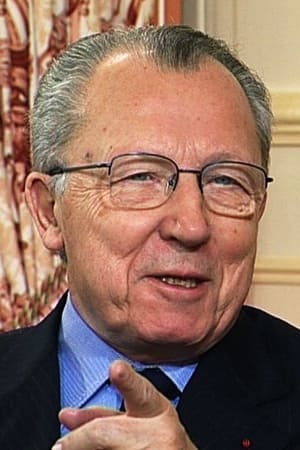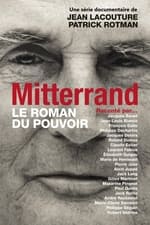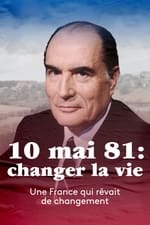Personal Info
Known For Acting
Known Credits 8
Gender Male
Birthday July 20, 1925 (99 years old)
Place of Birth Paris, France
Also Known As
- -
Content Score
100
Yes! Looking good!
Login to report an issue
Biography
Jacques Lucien Jean Delors (born 20 July 1925) is a French politician who served as the 8th President of the European Commission from 1985 to 1995. He served as Minister of Finance of France from 1981 to 1984. He was a Member of the European Parliament from 1979 to 1981. As President, Delors was the most visible and influential leader in European affairs. He implemented the policies that closely linked the member nations together and promoted the need for unity. He created a single market that made the free movement of persons, capital, goods, and services within the European Economic Community (EEC) possible. He also headed the committee that proposed the monetary union to create the Euro, a new single currency to replace individual national currencies. This was achieved by the signing of the Maastricht Treaty in 1992.
Born in Paris in a family originating from Corrèze, Delors first held in the 1940s through the 1960s a series of posts in French banking and state planning with the Banque de France. As a member of the French Confederation of Christian Workers, he participated in its secularization and the foundation of the French Democratic Confederation of Labour. In 1969, he became social affairs adviser to the Gaullist Prime Minister Jacques Chaban-Delmas, a move which was presented as part of Chaban's outreach to the centre-ground and first attracted media attention to Delors personally.
In 1957, Delors left the CFDT when he became a high government official to avoid conflicts of interests. In 1974 Delors joined the French Socialist Party, with other left-wing Christians. He was one of the rare members of the party to be openly religious, thus challenging its long-standing secular tradition of Laïcité. He served in the European Parliament from 1979 to 1981, becoming chairman of its Committee on Economic and Monetary Affairs, actively taking part in debates about economic, social and monetary policies. Under President François Mitterrand, Delors served as Economics and Finance Minister from 1981 to 1983, and Economics, Finance, and Budget Minister from 1983 to 1984. He advocated a pause in the social policies, a clear acceptance of the market economy, and an alignment with European social democracy. Critically, he held the line on France's membership of the European Monetary System (EMS), giving priority to monetary stability over left-wing spending priorities. Mitterrand flirted with the idea of naming him Prime Minister, but never made the appointment.
Delors became the President of the European Commission in January 1985. During his presidency, he oversaw important budgetary reforms and laid the groundwork for the introduction of a single market within the European Community. It came into effect on 1 January 1993 and allowed the free movement of persons, capital, goods, and services within the Community.
Delors also headed the committee that in early 1989 proposed the monetary union to create a new currency—the Euro—to replace individual national currencies. This was done in the 1992 Maastricht Treaty. ...
Source: Article "Jacques Delors" from Wikipedia in english, licensed under CC-BY-SA 3.0.
Jacques Lucien Jean Delors (born 20 July 1925) is a French politician who served as the 8th President of the European Commission from 1985 to 1995. He served as Minister of Finance of France from 1981 to 1984. He was a Member of the European Parliament from 1979 to 1981. As President, Delors was the most visible and influential leader in European affairs. He implemented the policies that closely linked the member nations together and promoted the need for unity. He created a single market that made the free movement of persons, capital, goods, and services within the European Economic Community (EEC) possible. He also headed the committee that proposed the monetary union to create the Euro, a new single currency to replace individual national currencies. This was achieved by the signing of the Maastricht Treaty in 1992.
Born in Paris in a family originating from Corrèze, Delors first held in the 1940s through the 1960s a series of posts in French banking and state planning with the Banque de France. As a member of the French Confederation of Christian Workers, he participated in its secularization and the foundation of the French Democratic Confederation of Labour. In 1969, he became social affairs adviser to the Gaullist Prime Minister Jacques Chaban-Delmas, a move which was presented as part of Chaban's outreach to the centre-ground and first attracted media attention to Delors personally.
In 1957, Delors left the CFDT when he became a high government official to avoid conflicts of interests. In 1974 Delors joined the French Socialist Party, with other left-wing Christians. He was one of the rare members of the party to be openly religious, thus challenging its long-standing secular tradition of Laïcité. He served in the European Parliament from 1979 to 1981, becoming chairman of its Committee on Economic and Monetary Affairs, actively taking part in debates about economic, social and monetary policies. Under President François Mitterrand, Delors served as Economics and Finance Minister from 1981 to 1983, and Economics, Finance, and Budget Minister from 1983 to 1984. He advocated a pause in the social policies, a clear acceptance of the market economy, and an alignment with European social democracy. Critically, he held the line on France's membership of the European Monetary System (EMS), giving priority to monetary stability over left-wing spending priorities. Mitterrand flirted with the idea of naming him Prime Minister, but never made the appointment.
Delors became the President of the European Commission in January 1985. During his presidency, he oversaw important budgetary reforms and laid the groundwork for the introduction of a single market within the European Community. It came into effect on 1 January 1993 and allowed the free movement of persons, capital, goods, and services within the Community.
Delors also headed the committee that in early 1989 proposed the monetary union to create a new currency—the Euro—to replace individual national currencies. This was done in the 1992 Maastricht Treaty. ...
Source: Article "Jacques Delors" from Wikipedia in english, licensed under CC-BY-SA 3.0.
Acting
|
|||
|
|||
|
|||
|
|||
|
|||
|
|||
|
|||
|








